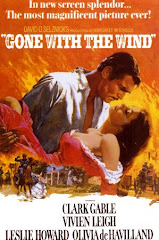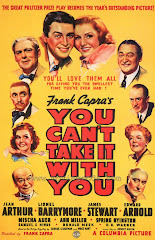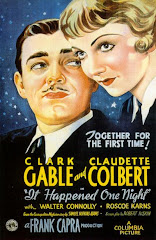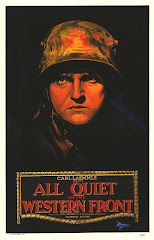Cast: Greer Garson, Walter Pidgeon, Henry Travers, Teresa Wright, Richard Ney
Genre: Drama
Other Nominees: The Invaders, Kings Row, The Magnificent Ambersons, The Pied Piper, The Pride of the Yankees, Random Harvest, The Talk of the Town, Wake Island, Yankee Doodle Dandy
In my commentary on the 1941 Oscar winning movie, How Green Was My Valley, I suggested that there may have been present in that film an underlying theme of the deconstruction of the family unit. I suggested that the film may have reflected fears that lived in Americans minds as they struggled with whether or not to get involved in the war in Europe, and with whether or not to risk the lives of their sons in battle. It is amazing how much had changed in a single year as there is absolutely no subtlety surrounding the themes of Mrs. Miniver. This is a film whose clear purpose was to foster an emotional bond between the middle classes of America and the suffering middle class of England. The director, William Wyler, commented quite candidly on the matter when he said:
"I was a warmonger. I was concerned about Americans being isolationists. Mrs. Miniver was obviously a propaganda film."
Mrs. Miniver follows a middle class family who live an absolute idyllic life before the bombs start falling and tear it apart. At the beginning of the film there is a very entertaining interaction between husband and wife as both anxiously fret over their overspending that day. This scene really was a joy to watch as both try to manipulate the conversation and their spouse into unknowingly justifying their purchase. The genius here is that this scene is completely recognizable as an ordinary middle class problem and I imagine many American viewers had no difficulty relating their lives to the lives of the Minivers.
I have to stress that I thoroughly enjoyed the interaction between Mrs. Miniver and her husband, played by Walter Pidgeon. There existed a genuine spark of romance and fun between the two and a real sense of joy emanated from watching them together. This film would not have been so impactful, and any suffering or sadness would not have been as hard hitting, had both Greer Garson and Walter Pidgeon not had such great chemistry on screen.
In steep contrast to the everyday stresses we witness early on, towards the end of the film both husband and wife experience anxiety of a very different nature. As London is Blitzed they spend night after night in a cramped bomb shelter listening to the destruction rain down outside. The films main character, Mrs. Miniver, shows immense hidden strength as she is forced to watch both her eldest son and husband take part in the war effort. Meanwhile her two young children struggle to come to terms with that is happening around them. Much like the rose that features prominently in the plot, Mrs. Miniver stands tall and proud throughout the extreme pressure she is placed under. Having set the stage for audiences to relate to the happy couple the film shifts focus to showing the bravery of the characters involved. Interestingly though, the focus on bravery centers not on the heroes of war. In fact, we see not a single battle scene in this film. Instead focus is placed on the mother of a family who is given the staggering task of keeping a semblance of normalcy as life is thrown into chaos around her.
Winston Churchill suggested that Mrs. Miniver was "more powerful to the war effort than the combined work of six military divisions." As I stated the motive of the film is crystal clear. This was a piece made to incite patriotism in the American people but more importantly it was to help the American people understand that this fight was not just England's fight, that the battle was for civilization itself! Nowhere is that message more clearly heard than in the village vicar’s sermon towards the end of the movie (note that I have removed certain statements for risk that they spoil plot developments):
“We, in this quiet corner of England, have suffered the loss of friends very dear to us
…
Why in all conscience should these be the ones to suffer? Children, old people… Why these? Are these our soldiers? Are these our fighters? Why should they be sacrificed?
…
I shall tell you why. Because this is not only a war of soldiers in uniform. It is a war of the people, of all the people, and it must be fought not only on the battlefield, but in the cities and in the villages, in the factories and on the farms, in the home, and in the heart of every man, woman, and child who loves freedom! Well, we have buried our dead, but we shall not forget them. Instead they will inspire us with an unbreakable determination to free ourselves and those who come after us from the tyranny and terror that threaten to strike us down.
…
This is the people's war! It is our war! We are the fighters! Fight it then! Fight it with all that is in us, and may God defend the right.”
I cannot help but wonder how it must have felt as an American audience member to suddenly realize that the vicar was not talking just to his parish. That he was in fact speaking out to all Americans, urging them to rise up and come to Britain’s aid. One of the reasons I was interested in seeing all these Oscar winning films was to look at how they were influenced by history and to ponder if they played a part in changing that history. While it would be ludicrous to suggest that all these movies changed the world I truly believe that they represent the times that people lived in, and like all art, had the power to change their audiences perspective.
Next Up: Casablanca



















































No comments:
Post a Comment